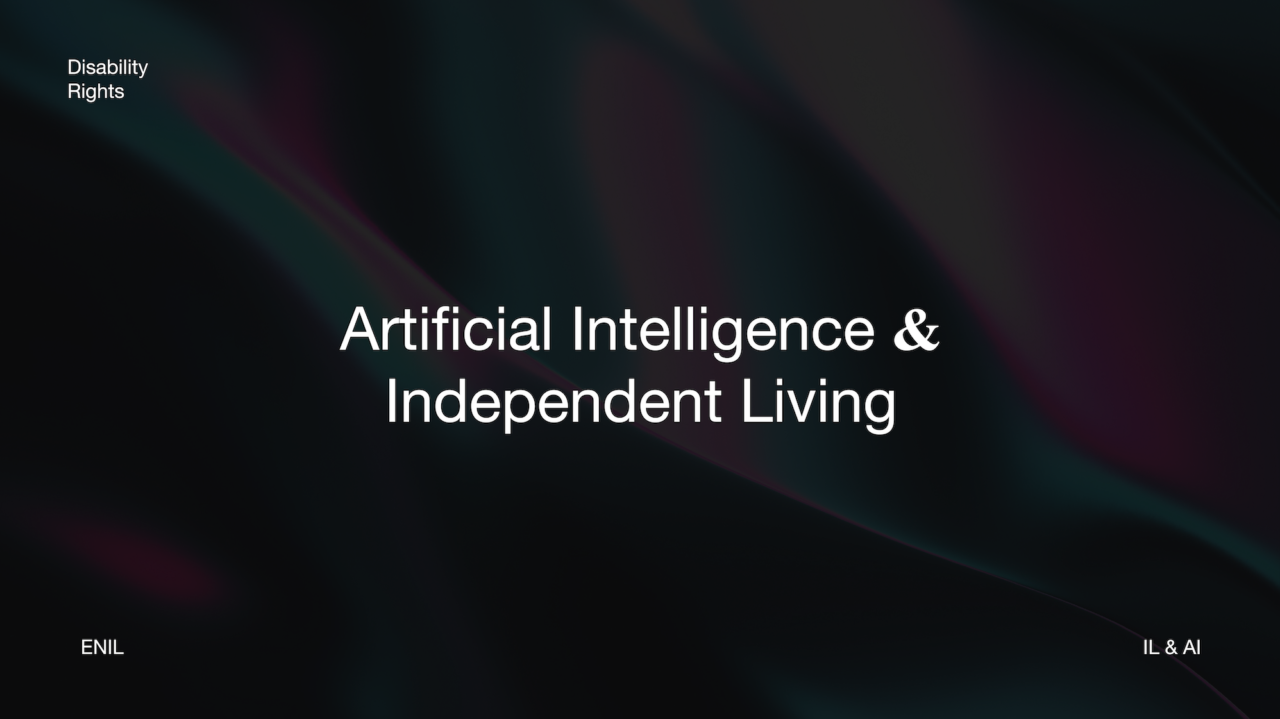Artificial Intelligence (AI) has significantly impacted the lives of disabled people. AI loosely mean technologies that use advanced computing to perform tasks that were traditionally done by humans. Disabled people are increasingly adopting AI in different facets of their lives, including for education, employment, communications, and socializing.
There is no singular definition of Artificial Intelligence (AI). Some examples of AI systems are smart home devices, autonomous cars, generative AI tools, and chatbots, amongst others. For this fact sheet, we borrow this definition of AI: “computer systems capable of performing complex tasks that historically only a human could do, such as reasoning, making decisions, or solving problems”. In the context of independent living, this definition emphasizes the potential of AI in reducing human intermediaries for disabled people.
What is ENIL doing on this topic?
There is a significant dearth of research on the impact of AI on the independent living of disabled people. To address this gap, the European Network on Independent Living (ENIL) launched a short study on assessing the intersection of AI and independent living in February – March 2024. We conducted desk research on AI systems, launched an online survey, and conducted a virtual focused group discussion (FGD) with disabled people from across the European Union and the United States. The survey garnered responses from 16 participants, and 10 disabled people participated in the virtual discussion. This is a summary of the longer fact sheet that presents results from the study. The full length version of the Fact sheet is available here.
Key findings of ENIL’s research
Through our study, we were able to explicate the opportunities and risks of AI technologies for independent living of disabled people. Results from both the survey and FGD highlighted a widespread adoption of AI tools by disabled people. We were also able to capture specific examples of how disabled people are using AI tools to reduce human intermediaries in performing different tasks such as using home appliances, communicating, or reading documents.
Participants also expressed their skepticism around AI technologies. We were able to record their unique experiences with privacy policies, cookie prompts, and tools that collect vast amounts of data.
This study also drew from existing literature to explore the potential of AI in enhancing the independent living of disabled people, while also providing specific examples of how it could harm the values of the independent living movement. The study encompasses several ideas – including trustworthy AI, privacy violations, beneficial technologies, and technology-facilitated disability discrimination.
Recommendations
This fact sheet adopted a participatory research process. We provide a non-exhaustive list of assistive AI tools available in the market. We also explain the importance of more public information around the benefits and risks of AI systems. We call for a greater inclusion of disabled people in the development, deployment, and governance of AI and emerging technologies.



